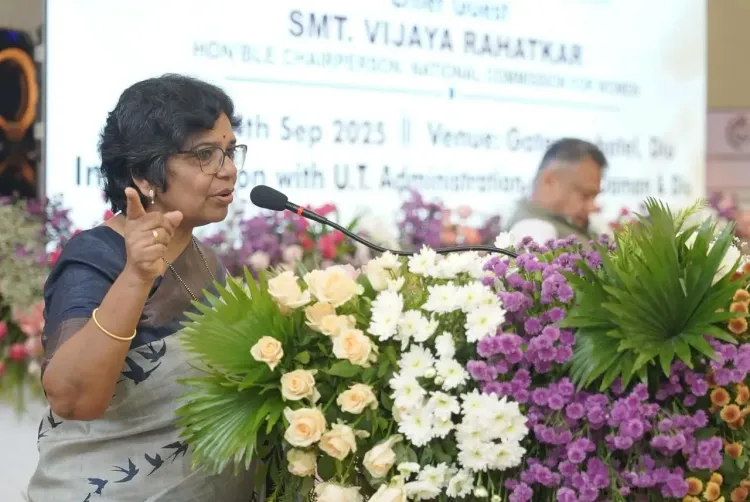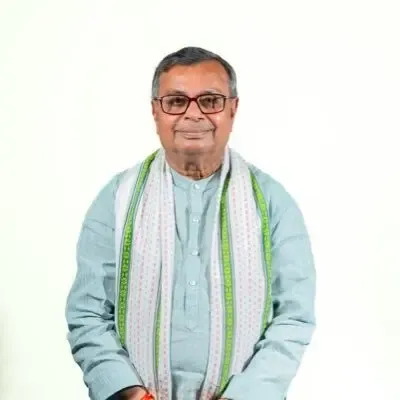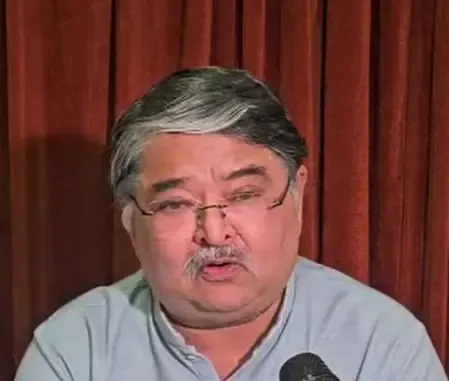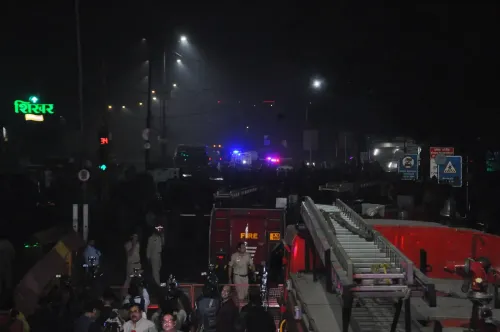What Did NCW Chief Vijaya Rahatkar Discuss About Women's Empowerment and Safety at the Rajkot Meeting?

Synopsis
Key Takeaways
- Women's empowerment is vital for societal progress.
- Local officials play a key role in ensuring women's safety.
- Shifting from 'development of women' to 'development led by women' is essential.
- Integrating women’s perspectives in policymaking can drive positive change.
- Artificial Intelligence can enhance administrative efficiency and safety measures.
Rajkot, Sep 15 (NationPress) The Chairperson of the National Commission for Women, Vijaya Rahatkar, engaged in a significant dialogue in Rajkot on Monday, meeting with local authorities to tackle the pressing issues of women's empowerment and safety, as reported by an official.
The event, titled ‘SHG Samwad’, was organized by the NCW at the Pramukh Swami Auditorium in Rajkot, aiming to raise awareness among women.
During her visit, the NCW chief also held discussions with senior police and administrative officials from the Saurashtra Division.
Rahatkar’s objectives included providing officials with innovative insights and strategies to promote women’s empowerment.
She encouraged these officers to see themselves as “real changemakers” who have the power to impact the lives of millions of women.
Just last week, Rahatkar was in Diu inaugurating the NCW’s three-day capacity-building initiative titled ‘Catalysts for Change: Gender Inclusive Governance’.
While addressing senior IAS and IPS officers from 20 states, the NCW Chairperson stated, “When a daughter can step out even at midnight, when a woman receives respect at the workplace, and when a victim experiences swift justice -- that will reflect your sensitivity and attentiveness.”
She called for a transformative shift in perspective, advocating for a transition from “development of women” to “development led by women.”
Rahatkar emphasized that a developed India can only be achieved when it becomes a safe and equal nation. She highlighted that the program is vital since police and administrative officers play a crucial role in securing women’s safety, enforcing laws, and executing development initiatives.
Following previous sessions in Thiruvananthapuram and Goa, this third session in Diu continues the mission of fostering a society rooted in safety and equal opportunities.
The inaugural day of the program included several informative sessions. NCW Member Secretary Sudeep Jain presented on ‘Gender Equality and Governance’, illustrating how incorporating women’s viewpoints in policymaking can lead to meaningful change.
Retired IPS officer Dr P.M. Nair led a workshop on crisis management and inter-agency coordination, while Raipur District Magistrate Gaurav Kumar shared valuable experiences on “Being a Catalyst of Change,” highlighting the need for innovation and sensitivity at the grassroots level.
Discussions also revolved around the impact of Artificial Intelligence on improving administrative efficiency, ensuring women’s safety, and enhancing grievance redressal mechanisms.









